Paper - audio - audiovisual archive collections - photo library
- Amicale belge des ex-Prisonniers politiques d'Auschwitz-Birkenau, camps et prisons de Silésie Collection
- Collection of Personal Documents of Victims of the Shoah and Nazi Crimes
- International Auschwitz Committee (IAC) Collection
- Collection of audio recordings of testimonies of camp survivors
- Collection of audiovisual testimonies of survivors of Nazi concentration camps and extermination centres
- Photo library

Period covered by the materials: 1946 - ...
Material importance: nearly 2,000 items (handwritten, typed and printed documents; originals and facsimiles), classified in 15 boxes.
Conditions of acquisition: deposit.
Presentation of the collection: current archives of the Amicale: administrative papers (letters, accounting documents, invitations, programmes, etc.) produced by the Amicale, administrative papers (authorisations, accreditations, etc.) received by the Amicale, correspondence produced by persecuted persons and deportees, received by the Amicale, etc.
Status of treatment: inventoried, classified, indexed collection (computerised).
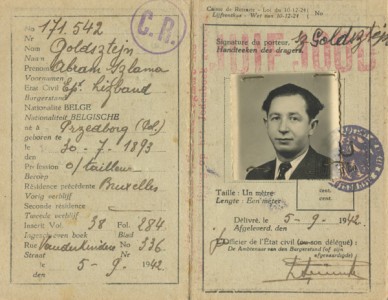
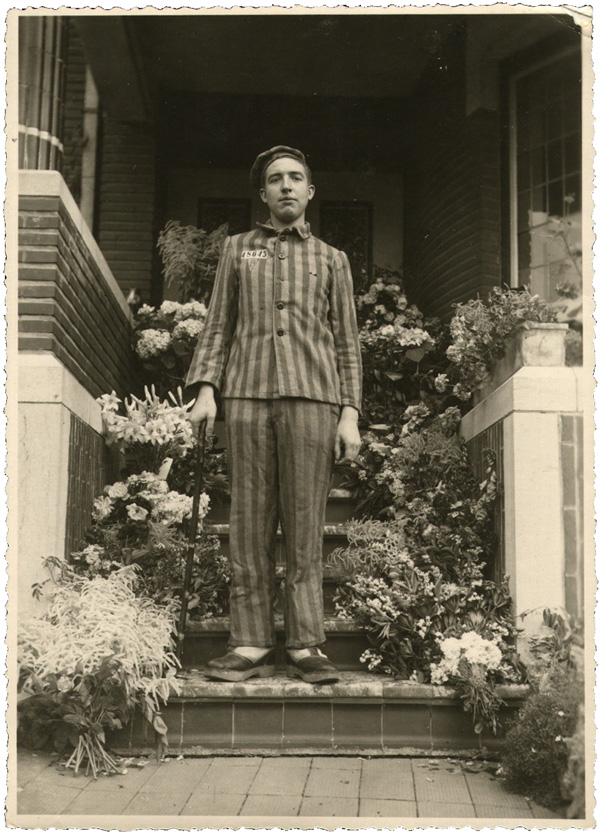
Material importance: approximately 3,000 items, classified in 30 boxes (photographic, written, typed, printed: originals and facsimiles).
Conditions of acquisition: deposits by victims of the Shoah and Nazi terror and their relatives, mainly during audiovisual interviews.
Presentation of the collection: private papers (letters, notebooks, autobiographies, drawings, poems, etc.) produced and received by persecuted persons and deportees, administrative documents (identity papers, certificates, authorisations, etc.) received by persecuted persons and deportees, personal photographs.
Status of treatment: collection inventoried, inventory in progress (computerised).
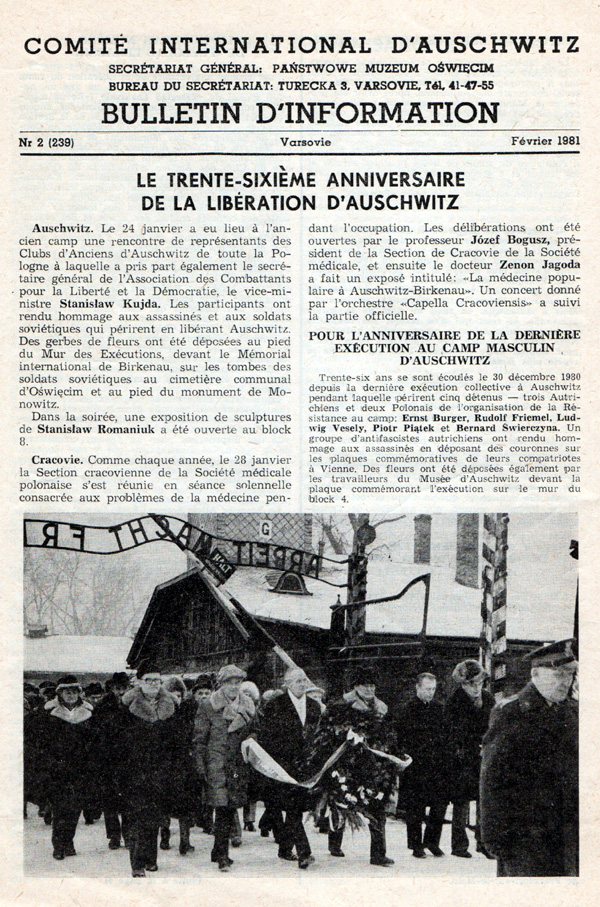
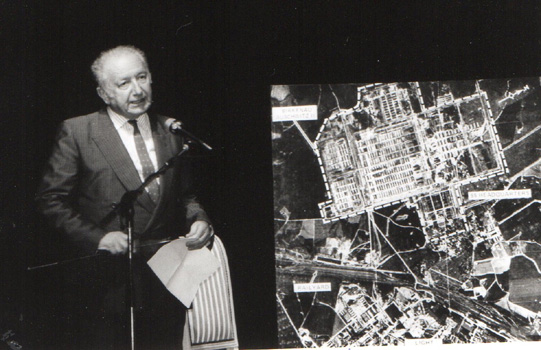
Period covered by the collection: 1977 - 1996.
Material importance: approximately 3,000 items (written, typed, printed: originals and facsimiles).
Conditions of acquisition: deposit.
Presentation of the collection: current archives of the IAC, publications and administrative papers produced by the IAC from 1977 to 1996, administrative papers received by the IAC, correspondence received by the Committee, etc.
Status of treatment: collection in the process of being inventoried.
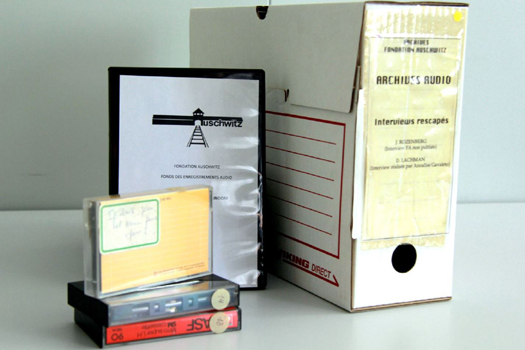
Material importance: 66 recordings, i.e. over 150 hours of recording time.
Conditions of acquisition: recordings made by the Auschwitz Foundation.
Presentation of the collection: testimonies of survivors of Nazi concentration camps and extermination centres.
Status of treatment: inventoried collection (typed).
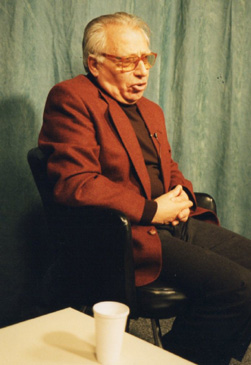
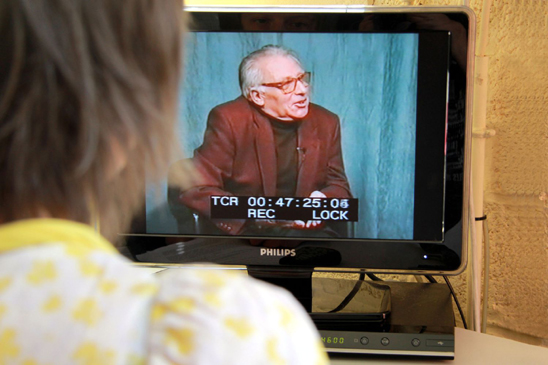
Period covered by the collection: 20th century.
Material importance: 246 recordings, i.e. over 1,250 hours of recording time.
Conditions of acquisition: the Auschwitz Foundation has been producing testimonies since 1992.
Presentation of the collection: testimonies of survivors of Nazi concentration camps and extermination centres, prisons and fortresses of the Third Reich.
Status of treatment: inventoried collection.
Overview of the archives relating to the Resistance kept at the Auschwitz Foundation (pdf)
See also our external website (in French): http://fortunoff-testimonies.be/
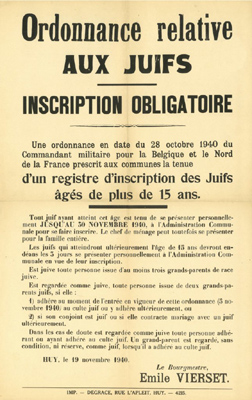
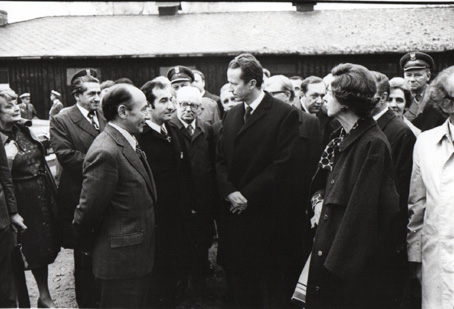
Period covered by the collection: 20th century.
Material importance: approximately 3,500 prints (originals and facsimiles), classified in 17 boxes.
Conditions of acquisition: deposits of various origins.
Presentation of the collection: photographic prints relating mainly to the Third Reich (history, economy, society, politics, ideology, propaganda), the Shoah and Nazi terror (euthanasia programmes, labour camps, concentration camps, extermination centres, liberation, etc.) and the activities of the Auschwitz Foundation.
Status of treatment: collection (partially) inventoried,(typed), inventory in progress (computerised).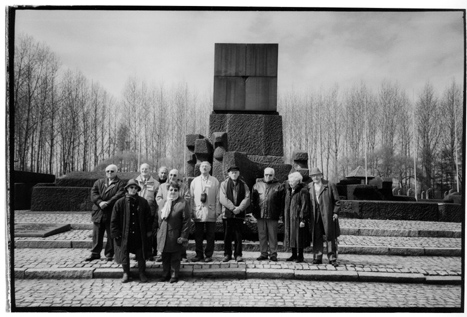
Contact
Auschwitz Foundation – Remembrance of Auschwitz
Rue aux Laines 17 box 50 – B-1000 Brussels +32 (0)2 512 79 98
+32 (0)2 512 79 98 info@auschwitz.be
info@auschwitz.be
BCE/KBO Auschwitz Foundation: 0876787354
BCE/KBO Remembrance of Auschwitz: 0420667323
Office open from Monday to Friday 9:30am to 4:30pm.
Visit only by appointment.
![]()
![]()
![]()
![]()
![]()
Become a member
To become a member of Remembrance of Auschwitz ASBL, please contact us and transfer the sum of €50.00 to our account IBAN: BE55 3100 7805 1744 – BIC: BBRUBEBB with the communication: ‘Membership fee 2025’. The membership includes two issues of 2025 of our scientific journal.
DONATIONS
Donations of €40.00 or more (in one or more instalments) qualify for tax exemption for Belgian taxpayers.
In communication, please specify that it is a ‘Donation’ and mention your National Number which is required since 2024 to benefit from the tax exemption.
Subscribe
Error : Please select some lists in your AcyMailing module configuration for the field "Automatically subscribe to" and make sure the selected lists are enabled

